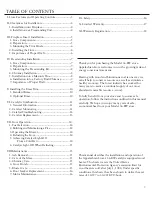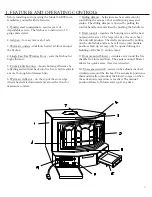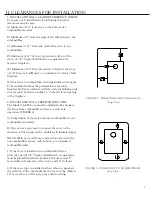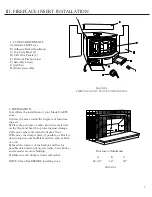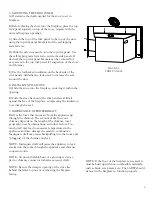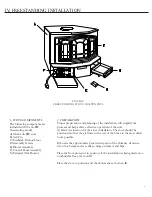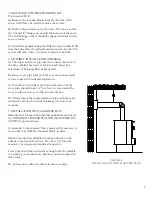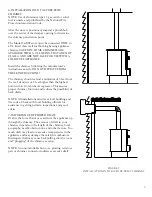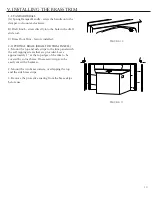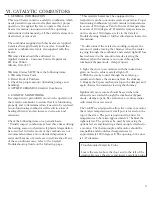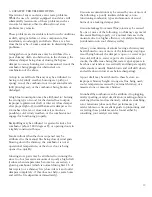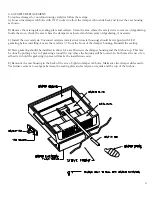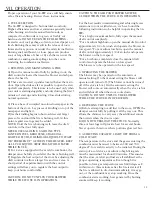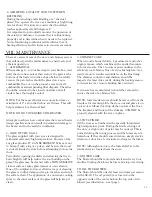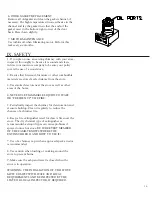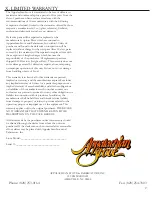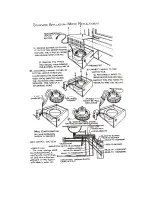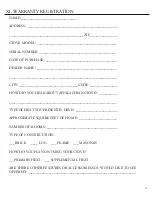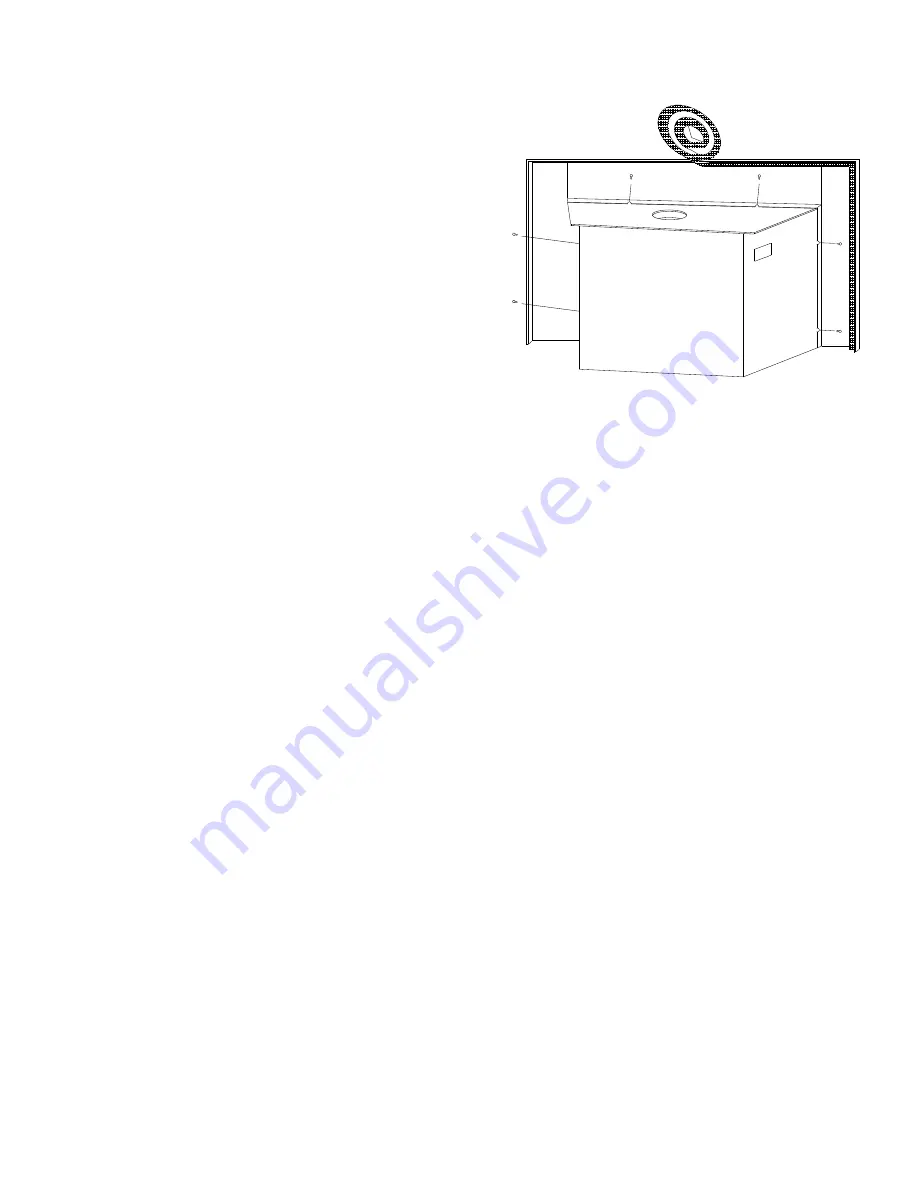
6
3. MOUNTING THE TRIM PANELS
A) Determine the depth needed for the stove to sit in
fireplace.
B) Before placing the stove into the fireplace, place the top
trim panel squarely on top of the stove, (square with the
unit and fireplace opening).
C) Attach the top of the trim panel to the top of the stove
using the top trim panel brackets and the self-tapping
metal screws.
D) Slide the side trim panels onto the top trim panel. Use
the self-tapping metal screws to secure the side panels. If
desired, the top trim panel brackets can be removed for
easy access to the top trim panel for inspection of the stove
and chimney.
E) Use the foil backed insulation on the back side of the
trim panels. Add silicone, if desired, to increase the seal
around the stove.
4. INSTALLING THE STOVE
A) Slide the stove into the fireplace, centering it within the
opening.
B) Push the stove back until the trim panels seal firmly
against the face of the fireplace, compressing the insulation
to accomplish a seal.
5. IMPORTANCE OF PROPER DRAFT
Draft is the force that moves air from the appliance up
through the chimney. The amount of draft in your
chimney depends on the length of the chimney, local
geography, nearby obstructions, and other factors. Too
much draft may lead to excessive temperatures in the
appliance and may damage the catalytic combustors.
Inadequate draft may cause backpuffing into the room and
“plugging” of the chimney catalyst.
NOTE: Inadequate draft will cause the appliance to leak
smoke into the room through the appliance and chimney
connector joints.
NOTE: An uncontrollable burn or a glowing red stove
part or chimney connector indicates excessive draft.
NOTE: Be sure the damper opening of the stove lies
behind the lintel to prevent overheating the fireplace
facing.
FIGURE 6
TRIM PANELS
NOTE: If the floor of the fireplace is recessed, it
must be built up with non-combustible materials,
such as brick, scrap metal, etc. The 36-BW should
sit level in the fireplace to function properly.
Summary of Contents for 36-BW
Page 18: ......


